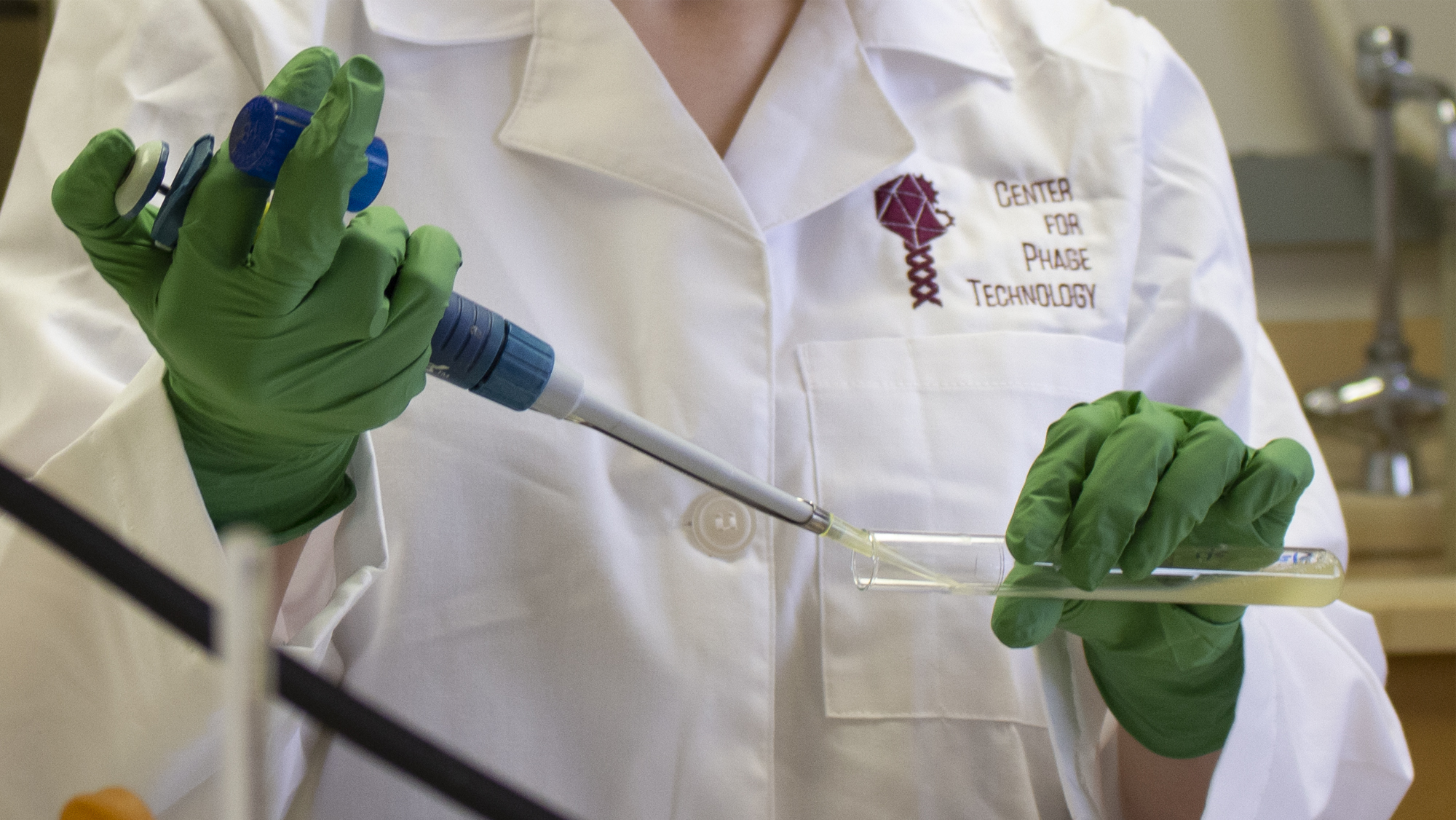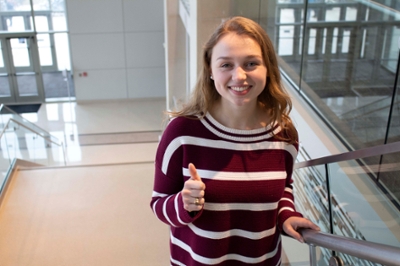
Ashley Holt, biomedical engineering senior, discovered soon after starting at Texas A&M University that research was her calling.
Holt said she started looking into engineering in high school when she realized how much she enjoyed math and science. Her older sister was pursuing biomedical engineering at the University of Illinois, and after learning more, Holt decided to study engineering as well.
“My senior year of high school I took Advanced Placement Biology, and that was probably one of my favorite classes. It was really fun,” Holt said. “Coming into college I knew I wanted to pursue engineering and I had a feeling that I wanted to work in the life sciences.”
Holt joined the Texas A&M chapter of the Biomedical Engineering Society her freshman year, which she said solidified her desire to be in biomedical engineering as it allowed her to fulfill her vision to work with tools to help people.
She was accepted into the national Beckman Scholars Program her freshman year, which started her path in research. She began working in the Department of Biochemistry and Biophysics with Dr. Ry Young, where she has experimented with viruses that attack bacteria, specifically E. coli.
“We study how they kill the bacteria, what proteins they use to kill it,” Holt said. “It’s been really exciting work.”

The Beckman Scholars Program is sponsored by the Arnold and Mabel Beckman Foundation, which annually selects institutions across the country that demonstrate a significant commitment to undergraduate research in chemistry, the biological sciences and/or interdisciplinary combinations. Selected students from each college are required to have 10 hours a week of research during the fall and spring semesters, as well as summer hours.
“It’s like a part-time job,” Holt said. “My freshman year I don’t think I really knew I wanted to do research. Starting in the Beckman Scholars Program really changed my college career.”
Holt found one advantage of working with bacteria is they grow quickly, taking two hours compared to the several days it takes to grow human and other eukaryotic cells.
“I think it’s been really good for learning how to set up experiments and run tests, because if you make mistakes you can grow another batch in a couple hours,” Holt said.
During her time at the lab she has seen all sides of research, ranging from seeing a project hit a dead end to discovering the function of a protein in a new virus.
“We wanted to learn more about this particular protein that we found, so we’ve been doing lots of different experiments to really understand the process that it uses to do this function,” Holt said. “This particular protein disrupts the outer membrane of E. Coli. It’s different than all the other outer membrane disrupting proteins that have been found.”
Holt believes the discovery and further research could lead to new potential antibiotic drugs.
“The protein that we found has some similarities to antibiotic proteins that we have in our bodies. It’s more similar than the other outer membrane disrupting proteins that have been found before,” Holt said. “It’s really interesting for potential therapeutic applications. If we can test these proteins by producing them within the bacteria, it gives us new things that we can test and new tools to test antibiotic proteins.”